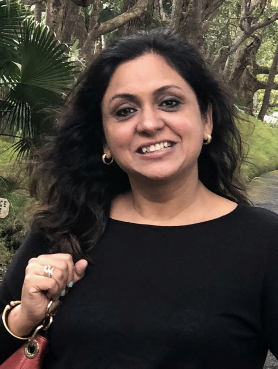Know Your Disease

Chitra Goyal writes:
“We should hide my father’s disease from him and my mother since they would be completely shattered.” This was my initial thought when we discovered my father had cancer. However, my brother, who had a more mature outlook and better understanding of my parents’ intrinsic strength, convinced me otherwise. In hindsight it was the right decision.
My father, after the initial shock, wanted to fully understand the extent of his disease and was determined to fight it to the best possible extent. And my mother who was physically frail with multiple health issues, displayed enormous emotional strength in supporting both, him and herself. In fact, while my father cooperated 100% and trusted us completely with his treatment planning, my mother gave us all the courage to face the situation with poise and rationality, simultaneously taking better care of herself. We did not have an additional burden of fabricating stories and were able to openly discuss the treatment plans and options.
Knowing that Papa had just a few years left of his life, we tried to live for the moment and be grateful for every day well spent. We started celebrating festivals with more fervor and joy. We made efforts to get the whole family together more often. We became more forgiving to one another. We are so thankful to God for giving us those precious last moments of love and togetherness.
Throughout my life, I have closely observed many loved ones who have faced immense grief and suffering with incredible poise and determination, just as my parents did. Despite debilitating diseases, losing spouses, family members, and even children, these individuals have demonstrated an unbreakable willpower and a desire to not just exist, but to live a fulfilling life. As I reflect on my own experiences and of others known to me, I have come to believe that human beings are inherently resilient and possess a natural inclination towards finding solutions in the face of adversity. Witnessing the remarkable strength and courage of those around me has only reinforced this belief.
As a firm believer in the power of transparency and honesty, I support the practice of openly discussing the extent and nature of a patient’s illness with them, regardless of whether it is terminal or not. I strongly believe that every person should be trusted to have the courage to face their condition, even if it is life-threatening. Of course, it is important that such discussions are approached in a compassionate, humane, and caring manner.
While receiving such news can be extremely devastating, it is often the case that after the initial shock has worn off, many people would prefer to spend their remaining time in a way that is most meaningful to them. This might include completing unfinished tasks, reconnecting with estranged loved ones, making crucial decisions about their medical care and end-of-life care, or pursuing experiences that they’ve always dreamed of but never had the chance to do.
By having open and honest conversations with patients about their health, we can empower them to make informed decisions about their care and help them to live their lives to the fullest extent possible, regardless of their circumstances. Such discussions can also provide patients with a sense of control and autonomy over their own lives, which can be incredibly important for their emotional wellbeing during what can be a difficult and trying time.
Believing in the power of open conversations and the resilience of the human spirit we, like many others, were able to approach my father’s cancer diagnosis with strength and grace. I believe that this approach can be beneficial for anyone facing a serious illness, allowing them to make informed decisions and live their remaining time in a way that is most meaningful to them. Ultimately, we can all learn from the example of those who face adversity with unwavering determination, and strive to approach life’s challenges with a similar spirit of courage and resilience.






